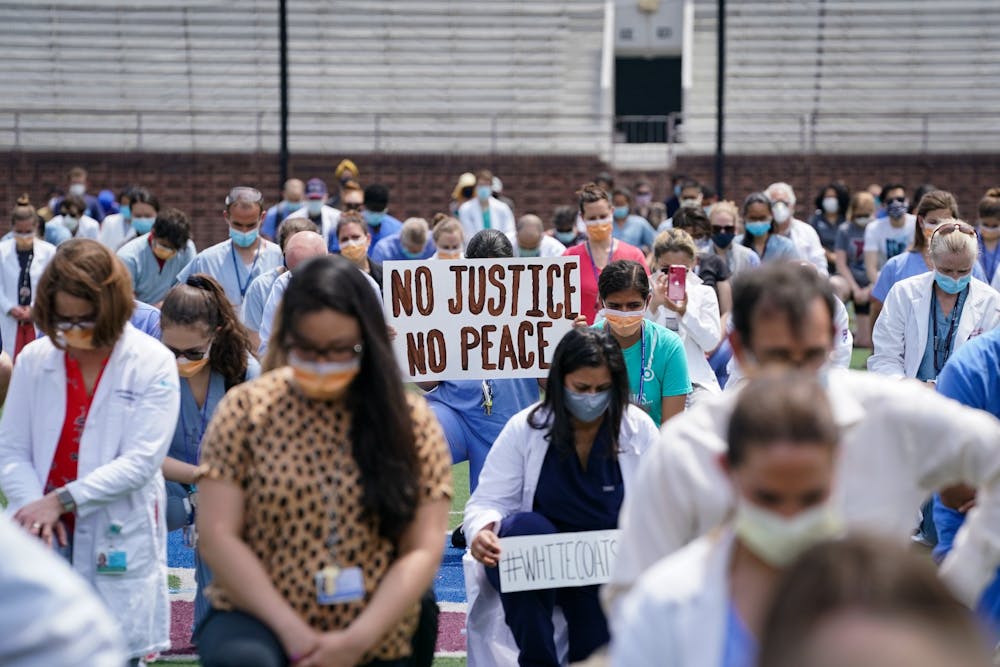
Staff members of the Children’s Hospital of Philadelphia, the Hospital of the University of Pennsylvania, and other local medical facilities walked out of their shifts on June 5, 2020 in support of the Black Lives Matter movement.
Credit: Chase SuttonThe Children’s Hospital of Philadelphia has joined 38 American health systems in declaring racism a public health crisis.
The Healthcare Anchor Network, a group of 50 health care systems in 45 states, released a statement on Sept. 27 titled “It is undeniable: Racism is a public health crisis." CHOP and other health care systems signed the statement, announcing a commitment to combating racial injustices in health care. Penn Medicine, however, did not join in signing the statement.
In a Sept. 28 press release, CHOP announced its preliminary plans to combat health care inequalities, which include supporting more people of color in leadership roles, anti-racism training for employees, and investing in equitable access to health care.
CHOP Vice President and Chief Diversity Officer Gilbert Davis said in the press release that the hospital will work collaboratively with its peer institutions to combat discrimination in healthcare.
“We are committed to listening to our neighbors of color and implementing initiatives that will help to eradicate all forms of discrimination,” Davis wrote. “CHOP is committed to being intentional and we will partner with others in the community to address the social injustice and systemic racism that contribute to disparity of care across our region."
The statement comes amid growing outrage in Philadelphia over systemic racism present in the COVID-19 pandemic. On June 4, protesters on Penn’s campus called on Philadelphia health care leaders to declare racism a public health crisis.
The Healthcare Anchor Network statement outlined steps for health care systems to take to promote greater equality in health care. These included increased hiring and recruiting of local people of color, targeting investments to minimize health disparities, and improving communication among staff and patients to combat racism.
“Our society only truly thrives when everyone has an opportunity to succeed and live a healthy life,” the Healthcare Anchor Network statement said. “We are committed to moving forward together. By harnessing the collective strengths of our organizations, we will help serve our communities as agents of change.”
Associate Professor of Medicine at the Perelman School of Medicine Shreya Kangovi told The Philadelphia Inquirer that people facing discrimination are disproportionately affected by disease.
“In the broadest sense, no matter what the disease — coronavirus, hunger, or chronic diseases — the same people are always at risk: people who have been systematically oppressed because of their race or other aspects of their identity,” Kangovi told The Inquirer.
Kangovi said that it is necessary to combat the social factors that affect health in order to successfully reduce health care inequalities.
“As we define the problem statement, the thing we need to solve is injustice,” Kangovi told The Inquirer. “We can’t always just have disease-specific interventions — those are treating the symptoms. We have to get close to the root.”
The Daily Pennsylvanian is an independent, student-run newspaper. Please consider making a donation to support the coverage that shapes the University. Your generosity ensures a future of strong journalism at Penn.
Donate



